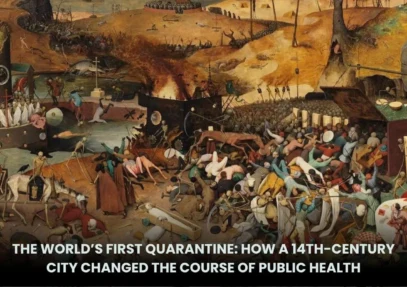What is the difference between modernization and westernization?
Artificial Intelligence (AI) has the potential to be both beneficial and challenging for society, depending on how it is developed and applied. Here are some aspects to consider: Positive Impacts: Healthcare: AI can help with early diagnosis, personalized treatments, and drug development. It can assRead more
Artificial Intelligence (AI) has the potential to be both beneficial and challenging for society, depending on how it is developed and applied. Here are some aspects to consider:
Positive Impacts:
Healthcare:
AI can help with early diagnosis, personalized treatments, and drug development. It can assist doctors in identifying conditions that may not be easily detectable, improving health outcomes.
Automation and Productivity:
AI can automate repetitive tasks, allowing humans to focus on more complex, creative, or strategic work. This can increase productivity and innovation.
Environmental Sustainability:
AI can optimize energy usage, predict climate patterns, and improve waste management, all of which contribute to environmental protection and sustainability.
Education and Accessibility:
AI can personalize learning experiences for students, helping those with disabilities and providing access to education in remote areas.
Safety and Security:
AI systems can be used in areas like cybersecurity, fraud detection, and disaster response, enhancing safety and security in society.
Challenges and Concerns:
Job Displacement:
Automation driven by AI could displace many jobs, especially in sectors like manufacturing, transportation, and customer service. This can lead to unemployment and income inequality.
Bias and Discrimination:
AI systems may perpetuate biases if they are trained on biased data. This can lead to unfair outcomes, particularly in areas like hiring, law enforcement, and lending.
Privacy and Surveillance:
AI can be used for surveillance, potentially infringing on individual privacy. There are concerns about how personal data is collected, stored, and used by AI systems.
Ethical and Moral Issues:
AI systems make decisions based on algorithms, but these decisions might lack empathy and moral consideration. Determining who is responsible for an AI’s actions (such as in autonomous vehicles) is also a complex issue.
Security Risks:
AI can be used maliciously, such as for creating deepfakes, cyberattacks, or autonomous weapons, posing threats to security.
Conclusion:
AI has the potential to greatly benefit society, but its implementation needs careful regulation, ethical considerations, and societal awareness. If developed responsibly, AI could help tackle some of humanity’s greatest challenges, but it also requires safeguards to minimize the risks and negative consequences.







Modernization and Westernization are related but distinct concepts, often confused due to their overlapping effects in many societies. Here’s how they differ: 1. Definition Modernization refers to the process of adopting new technologies, institutions, and practices to improve economic, political, aRead more
Modernization and Westernization are related but distinct concepts, often confused due to their overlapping effects in many societies. Here’s how they differ:
1. Definition
Modernization refers to the process of adopting new technologies, institutions, and practices to improve economic, political, and social development. It is a broad and universal concept that can occur in any society without necessarily adopting Western cultural values.
Westernization is the adoption of cultural, social, political, and economic norms associated with Western countries (primarily Europe and North America). It involves embracing Western lifestyles, clothing, language, governance models, and sometimes even ideologies.
2. Scope
Modernization focuses on technological advancement, industrialization, urbanization, and improved governance. It includes scientific progress, efficient administration, infrastructure development, and better healthcare and education.
Westernization involves cultural aspects such as wearing Western attire, eating fast food, speaking English, celebrating Western festivals, and following Western entertainment and social norms.
3. Dependency on Western Influence
Modernization does not necessarily mean adopting Western values. Countries like Japan, China, and South Korea have modernized while maintaining their unique cultural identities.
Westernization implies a shift towards Western culture, often replacing or overshadowing indigenous traditions.
4. Examples
Modernization Example: India’s use of digital banking, advancements in space technology, and smart city projects without losing its cultural heritage.
Westernization Example: The influence of Hollywood movies, Western fashion brands, and fast-food chains changing local habits and traditions.
5. Impact on Society
Modernization leads to progress in infrastructure, governance, and economic growth, allowing a country to compete globally while preserving its identity.
Westernization may result in cultural erosion, where local traditions and languages decline in favor of Western lifestyles.
Conclusion
Modernization is a global and necessary phenomenon for progress, while Westernization is a cultural shift that is optional and varies by society. A country can modernize without being Westernized, but Westernization often accompanies modernization due to globalization.
See less